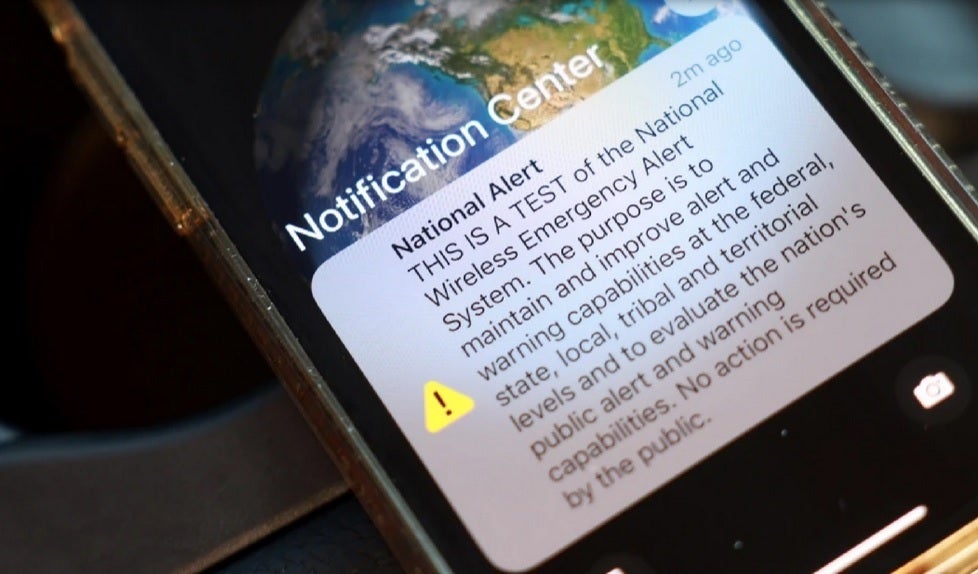
AT&T had 1,000 employees take part in a voluntary survey about the testing of the nationwide alert
For the most part, the four wireless providers said that everything went as expected during the test except for some fiber cuts that delayed the receipt of the alert in some areas. The four also noted that some Android devices had some problems receiving the test. The carriers conducted their own reviews following the test. For example, AT&T had 1,000 employees participate in a voluntary survey to determine whether its subscribers received the test in a timely manner.

Carriers discovered some issues when the government ran its nationwide test alert on October 4th
As the carrier told the FCC, “Cell sites serving twelve cities … in Texas were off-the-air during the initial transmission of the alert. Once restored, the alert would have been transmitted and those subscribers that didn’t receive the alert from the surrounding area or other providers would have then received the alert. This may have impacted approximately 35,000 subscribers.”
The FCC would like Congress to force the wireless carriers to carry the nationwide alerts
According to the FCC, the October 4th test was designed “to ensure that the systems continue to be effective means of warning the public about emergencies, particularly those on the national level.” The agency said that it is working to improve the wireless portion of the system. It will also require the carriers to support the alert not only in English, but also in the 13 most commonly spoken languages and American Sign Language.
A nice feature that the FCC is requiring will force the carriers to include maps in Wireless Emergency Alert (WEA) messages that show the location of the alert recipient compared to the location where the emergency is taking place. FCC Chairwoman Jessica Rosenworcel said that while the WEA system remains voluntary for network operators, it should be mandatory.
Rosenworcel said, “These are important changes to the Wireless Emergency Alert system. These are the devices we have in our palms, pockets, and purses at all times. Every carrier and every device should be capable of receiving these warnings. This should not be voluntary. It’s time to update the law,” An update to the law that forces the wireless providers to carry the alerts would probably require congressional approval.






